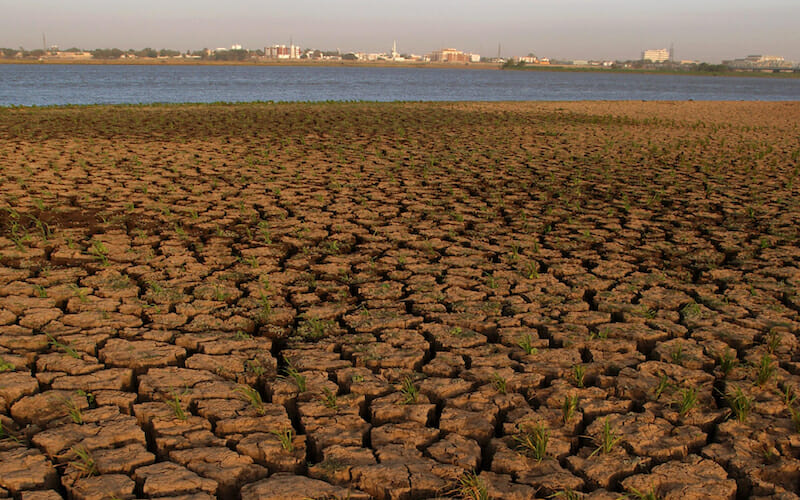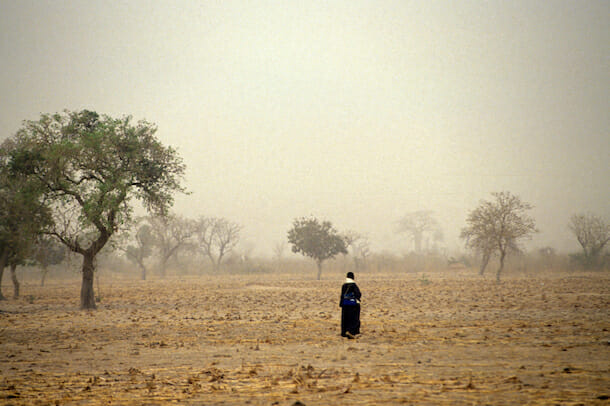
The Climate Emergency: Two Time Scales
The following is a synopsis of a book I am about to publish on the need for immediate action on climate change.
Immediate action is imperative if we are going to insure that future generations will be able to survive on planet earth. In order to avoid a catastrophe we must understand that climate change is a contrast of time scales. Fossil fuels must remain in the ground and forests must be preserved and not be destroyed in order to produce beef and palm oil.
These vitally necessary actions are opposed by powerful economic interests like powerful fossil fuel corporations desperate to monetize their underground “assets,” and by corrupt politicians receiving money from the beef or palm oil industries. Although some of the disastrous effects of climate change are already visible, the worst will occur in the distant future. Therefore, it is difficult to mobilize the political will for quick action. We need to act immediately, because of the danger of passing tipping points beyond which climate change will become irreversible despite human efforts to control it.
Tipping points are associated with feedback loops, such as the albedo effect and the methane hydrate feedback loop. The albedo effect is whether the sunlight falling on polar seas is reflected or absorbed. While ice remains, most of the sunlight is reflected, but as areas of sea surface become ice-free, more sunlight is absorbed, leading to rising temperatures and further melting of sea ice.
The methane hydrate feedback loop involves vast quantities of the powerful greenhouse gas methane, frozen in a crystalline form surrounded by water molecules. 10,000 gigatons of methane hydrates are at present locked in the Arctic tundra or the continental shelves of the world’s oceans. Although oceans warm very slowly because of thermal inertia, the long-term danger from the initiation of a methane-hydrate feedback loop are great. A very large-scale anthropogenic extinction event could be initiated unless immediate steps are taken to drastically reduce the release of greenhouse gases.
In writing this book, I have tried to gather facts from as many sources as possible to throw light on issues connected with climate change. In his autobiography, Charles Darwin says, “Science consists in arranging facts in such a way that general conclusions may be drawn from them.” I have tried to work in this spirit, the Baconian method. The conclusion which the facts support is reflected in the title of the book: The Climate Emergency: Two time scales.

The transition to 100% renewable energy must take place in about a century because by that time fossil fuels will become too rare and expensive to burn. They will be used instead as starting points for chemical synthesis.
There is reason for optimism, because an economic tipping point has been passed. Both solar and wind energy are cheaper than energy from fossil fuels, especially if the enormous governmental subsidies to the fossil fuel industries are discounted.
I review current renewable energy technologies which includes Elon Musk’s innovative work.
Although the extraction of fossil fuels urgently needs to end, coal, oil and natural gas are being produced today, almost as though the climate emergency did not exist.
We are in danger of passing tipping points, after which human efforts to prevent catastrophic climate change will become useless because of feedback loops. There is a danger that a human-produced sixth major extinction event will be initiated. It could be comparable to the Permian-Triassic extinction, during which 96% of marine species and 76% of terrestrial vertebrates vanished forever.
The thermal inertia of the oceans contribute to the contrasting timescales mentioned above. One of the reasons why the worst effects of climate change will occur in the long-term future is that the oceans warm very slowly. As the oceans slowly warm there will be sea level rise due to thermal expansion of water, and to this will be added the effects of melting ice at the poles. Rising ocean levels have already affected island nations such as the Maldives, and coral reefs are already dying.
Deforestation is one of the main causes of climate change and it is second only to the emission of CO2. In Indonesia, rainforests are deliberately burned, with the cooperation of corrupt politicians, to clear land for palm oil plantations. Rainforests of South America are also illegally burned, in this case for the sake of soybean plantations and cattle ranches. In both cases, loss of habitat accelerates the extinction of threatened species.
The effects of climate change and the end of the fossil fuel era will impact the world’s ability to feed its rapidly growing population. One can predict that these factors will combine to produce an extremely large-scale famine by the middle of the 21st century if steps are not taken to prevent it. We are already experiencing a crisis from refugees fleeing from famine, rising temperatures, drought and conflicts.
From the facts presented we must conclude that the world is facing a serious emergency, just as though a universally deadly disease pandemic had broken out. We need to recognize the emergency and act accordingly.
Unchanged life-styles and business as usual are not options. Inaction is not an option. Public education is needed. Votes for environmentally friendly politicians are needed. A carbon tax is needed. Subsidies to fossil fuel giants and the extraction of fossil fuels must end. Renewable energy infrastructure must be built which will provide unprecedented investment opportunities.
There is reason for optimism as a result of the economic tipping point. Renewables are now cheaper than fossil fuels. With the help of renewable-friendly governmental policies, the transition that we so urgently need can be driven by economic forces alone.
If we care about our children and grandchildren, we must act now both as individuals and collectively.

